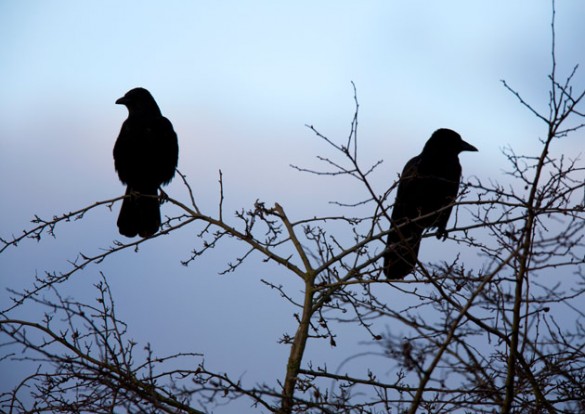
Plant Operations will implement light devices, distress calls and other noisemakers in an effort to drive roosting birds from campus trees along 21st Avenue South and West End Avenue, near Warren and Moore Colleges. As in previous years, humane methods of dispersal will be used to frighten the birds away without causing harm.
The dispersal efforts are scheduled to begin Thursday, Dec. 10, and continue daily through Sunday, Dec. 20.
From 6 to approximately 6:45 a.m. each day, light devices such as hand-held spotlights will be used to affect the birds’ sensory pathways and disrupt their resting behavior. In addition, distress calls—digitally reproduced recordings of birds in distress or great discomfort—will be played via amplified sound equipment to excite the birds and expel them from their roosting sites.
Between 3:30 and 5:30 p.m. each day, distress calls as well as noisemakers that produce loud sound but do not deliver projectiles will be discharged at approximately five-minute intervals for up to an hour. The noisemakers will be used only during evening operations and not in the mornings.
The equipment and materials being used have a proven record of safety and effectiveness, according to Plant Ops, which will make every effort to restrict their use to an as-needed basis and adjust operations to reduce distraction to students, faculty and staff.
The length of time necessary to disperse a roost varies; however, if harassment is going to be effective, it generally requires from five to 10 days of continuous daily effort, Plant Ops said.
Roosting birds are attracted to Vanderbilt because of the large number of magnolia trees on campus. The trees keep their leaves and berries throughout the winter creating an inviting roosting area for starlings, blackbirds and crows.
The droppings created by these birds pose the threat of histoplasmosis, which can lead to serious respiratory infections.